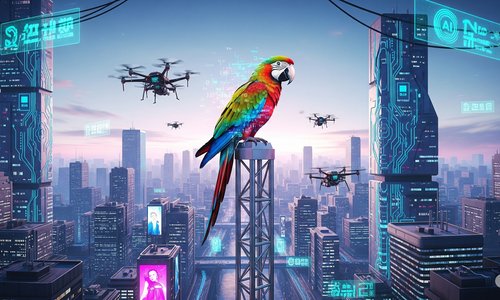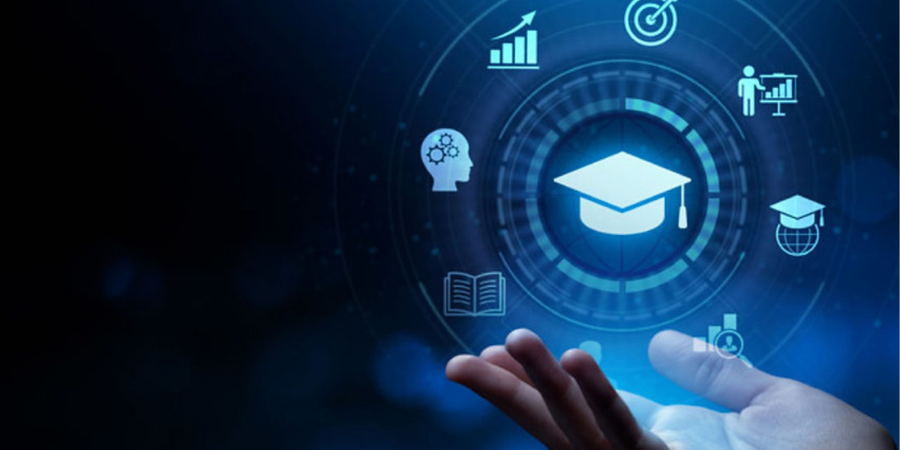
A Promessa e o Perigo da Nova Revolução Digital
A nova corrida tecnológica global levanta uma pergunta urgente: estamos prontos para confiar na inteligência que criamos?

Ela já está presente em dentro do nosso dia a dia. O principal objetivo da IA é otimizar os processos de rotina, melhorando sua velocidade e eficiência.
Em relação às grandes oportunidades, as ferramentas de IA se abrem para todos os setores, incluindo o educacional.
A inteligência artificial na educação (AIEd) abriu novas oportunidades e desafios nas práticas educacionais.
Apesar de sua curta história, a AIEd não se trata apenas de transformar a forma como os professores podem fazer o seu trabalho, mas também, está relacionado a maneira como os alunos aprendem.
Apesar do uso ainda ser tímido no Brasil, uma pesquisa divulgada pela consultoria Pearson, no final de 2019, deixa claro que os estudantes entendem a importância desta tecnologia.
Vejamos a seguir, as principais ferramentas de inteligência artificial que podem ou poderão ser aplicadas para melhorar o processo de ensino-aprendizagem.
Professores não apenas ensinam, mas também tem um papel de gerenciar o ambiente da sala de aula juntamente com inúmeras tarefas organizacionais e administrativas, ou seja, gastam parte do seu tempo corrigindo testes, avaliando trabalhos de casa, organizando recursos e materiais para suas aulas.
No final, eles gastam muito tempo em tarefas não didáticas, e isso os sobrecarrega. A Inteligência Artificial automatizará essas tarefas para ter mais tempo para fazer seu trabalho principal de ensino sem se incomodar com tarefas administrativas.
Ajustar o aprendizado com base nas necessidades específicas de cada aluno tem sido uma prioridade para os educadores há anos, mas a IA permitirá um nível de diferenciação impossível para professores que precisam gerenciar 20 alunos em cada turma. Com o uso da IA, os alunos agora possuem uma abordagem personalizada aos programas de aprendizado com base em suas próprias experiências e preferências únicas. A IA pode se adaptar ao nível de conhecimento, velocidade de aprendizado e objetivos desejados de cada aluno para que eles aproveitem ao máximo sua educação. Além disso, as soluções baseadas em IA podem analisar os históricos de aprendizado anteriores dos alunos, identificar pontos fracos e oferecer cursos mais adequados para aprimoramento, oferecendo muitas oportunidades para uma experiência de aprendizado personalizada.
As salas de aula educacionais podem se tornar globalmente disponíveis para todos os alunos por meio de ferramentas de IA, mesmo aqueles com deficiência auditiva ou visual ou que falam idiomas diferentes. Isso abre novas possibilidades para alunos que precisam aprender em diferentes níveis, que querem aprender uma matéria indisponível em sua escola ou estão doentes e ausentes das escolas.
Hoje a IA pode ajudar os professores a criar conteúdo inteligente que torne o ensino e o aprendizado mais confortáveis para eles e para os alunos, respectivamente.
Uma coisa que é importante na educação é que o professor não confie em seu antigo conhecimento residual. Há mais fatos que eles precisam saber e ensinar aos alunos também. Isso sem falar no fato de que eles estudam e ensinam dentro de um escopo limitado e há muitas outras coisas que eles ainda podem aprender.
Com a IA, os professores têm informações abrangentes disponíveis na ponta dos dedos. Isso permite que eles busquem por coisas que não conheciam ou melhorem seus conhecimentos anteriores.
Conclusão
A AIEd têm o poder de transformar o setor educacional para sempre, abordando alguns dos desafios mais críticos que enfrenta atualmente.
Definitivamente, professores, alunos e instituições de ensino se beneficiam com a aplicação da AIEd. O aprendizado fica mais personalizado e o professorado mais eficiente.
Apesar de estar ainda em fase inicial de implementação no mercado educacional, à medida que o setor de IA se expande e a inovação está na vanguarda, veremos melhores resultados de aprendizado para todos os alunos e educadores.
Por fim, é crucial enfatizar que o AIEd não é apenas sobre a implementação da tecnologia de IA; é uma integração das dimensões pedagógica, social, cultural e econômica durante os processos de aplicação da tecnologia.
Sobre o Autor
Tenente Coronel Onédio Siqueira SEABRA Junior
É militar do Exército há 28 anos. Atualmente, realiza Mestrado em Governança, Tecnologia e Inovação; possui diversas Especializações, MBA e formações na área de Inteligência Artificial, Ciência de Dados e Educação a Distância; é membro da I2AI, do Grupo de Estudos de Meio Ambiente e Inteligência Artificial (GEMAIA) e Gerente de Projetos na Diretoria de Patrimônio Imobiliário e Meio Ambiente.
Presidente da I2AI, Coordenador da Comissão de Tecnologia da Informação Quântica pela ABNT, Speaker, Pesquisador e Coronel do Exército Brasileiro. É um profissional extremamente qualificado e experiente em diferentes áreas. Possui mestrado em Governança, Tecnologia e Inovação, pela Universidade Católica de Brasília, bem como especializações em Ciências Militares, Bases Geo-Históricas, Engenharia de Sistemas, Ciência de Dados, Inteligência Artificial e Educação a Distância, além de vários MBAs, como em Administração Imobiliária, Gestão Pública Federal, Inteligência Artificial, Gestão de Projetos e Nova Lei de Licitações.
Além disso, é membro da Sociedade Brasileira de Computação, bem como do Grupo de Excelência em Processo Prospectivo e Construção de Cenários - CRA-SP.

A nova corrida tecnológica global levanta uma pergunta urgente: estamos prontos para confiar na inteligência que criamos?

Por que dominar a IA será a nova alfabetização do século XXI

Conselhos de Administração devem evoluir da supervisão reativa para a antecipação estratégica, frente à crescente complexidade e volatilidade dos ambientes de negócios.

De 14 a 25 de julho, reserve suas manhãs das 08h00 às 09h30 para participar da tradicional Maratona I2AI! Uma jornada intensa com debates e palestras sobre temas essenciais: Ética,